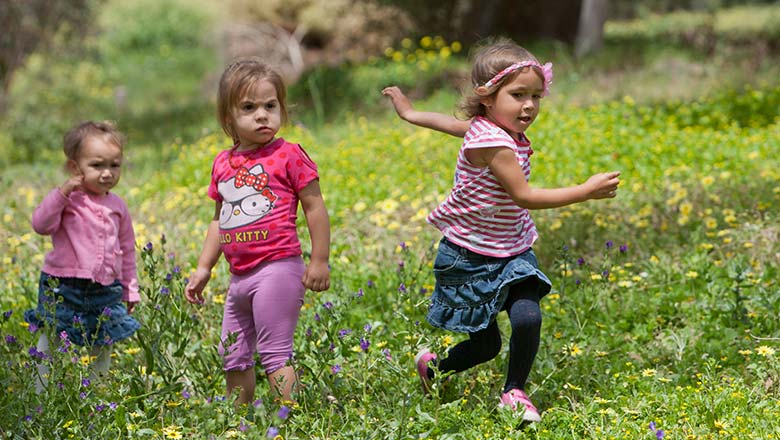Search

News & Events
New research partnership to ensure no child gets left behindResearchers will track the progress of 12,000 children from birth to age five to identify what services are valuable to families to support the health and wellb
News & Events
Australian kids doing better in key development indicatorsAustralian 5 year olds are developing better than they were three years ago and have improved in most development indicators, according to the latest AEDI data.
News & Events
Telethon Institute joins international effort to improve early nutrition and long term healthThe Kids for Child Health Research will join more than 50 scientists from 36 research institutions around the world to improve early nutrition
News & Events
Telethon Institute researcher in nation's top tenHead of nutrition research at Perth's The Kids for Child Health Research named in the nation's top 10 health and medical researchers for 2010.
News & Events
Prevention report shows clear path forwardThe health of Australia's children depends on a firm national commitment to implement the comprehensive strategy outlined by the Preventative Health Taskforce.
News & Events
First national snapshot of Australia's young childrenFor the first time, the Australian Early Development Index (AEDI) has been completed nationally, giving Australia a snapshot of young children's development.

News & Events
Starting & staying on track10 years of work guided by The Kids Research Institute Australia has resulted in huge improvements in the development of Aboriginal children at the start of school.
Research
Review of Universal Access Funded Aboriginal Children with Hearing Impairment Support ProgramIn 2021 the South Australian Department for Education commissioned The Kids Research Institute Australia to undertake a review of the Hearing Impairment Support Program (HISP).
Research
Analysis of gender differences between boys and girls in South AustraliaThe Department for Education commissioned this report to understand how such gender differences in early childhood may influence outcomes later in life.
Research
Evaluation of Children's Centres in South AustraliaYasmin Harman-Smith BA, BHlthSc(Hons), PhD Head, Early Years Systems Evidence; Head, Tenders Support Unit Yasmin.harman-smith@thekids.org.au Head,
